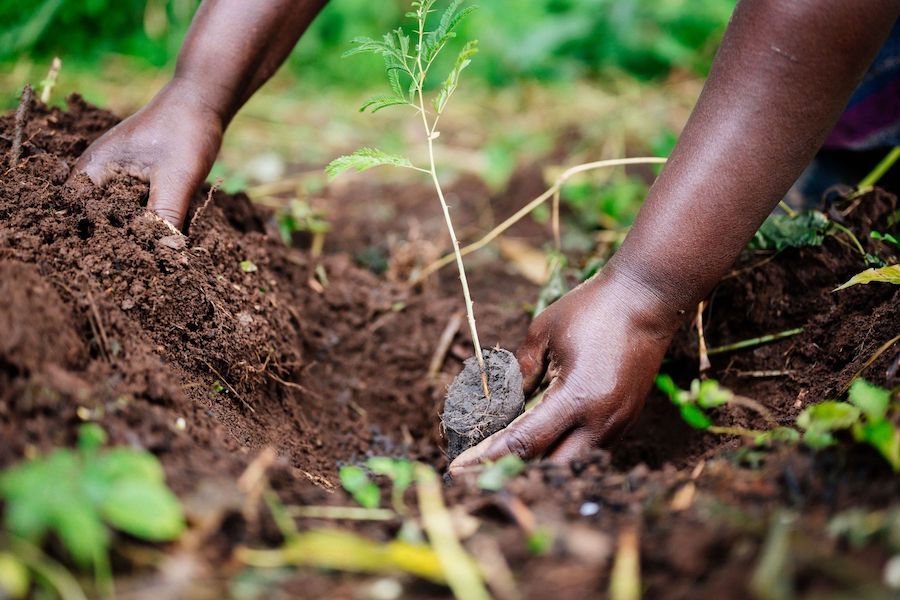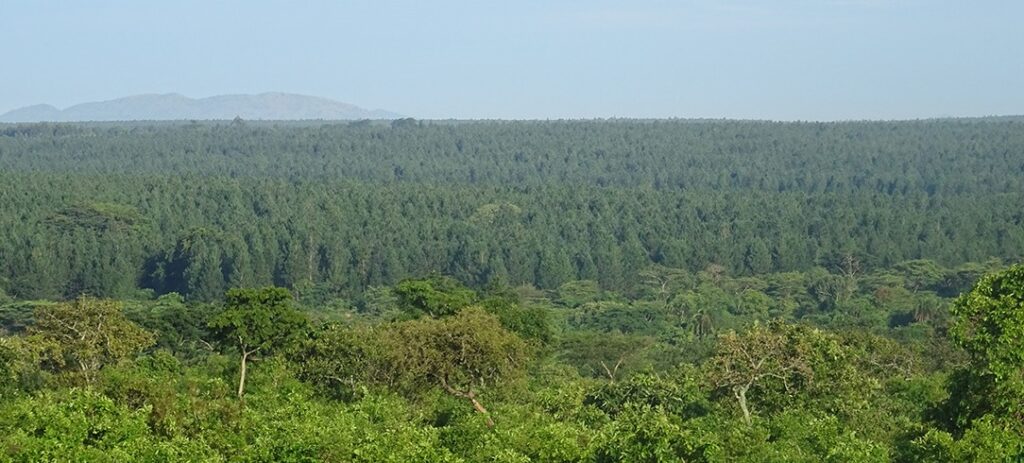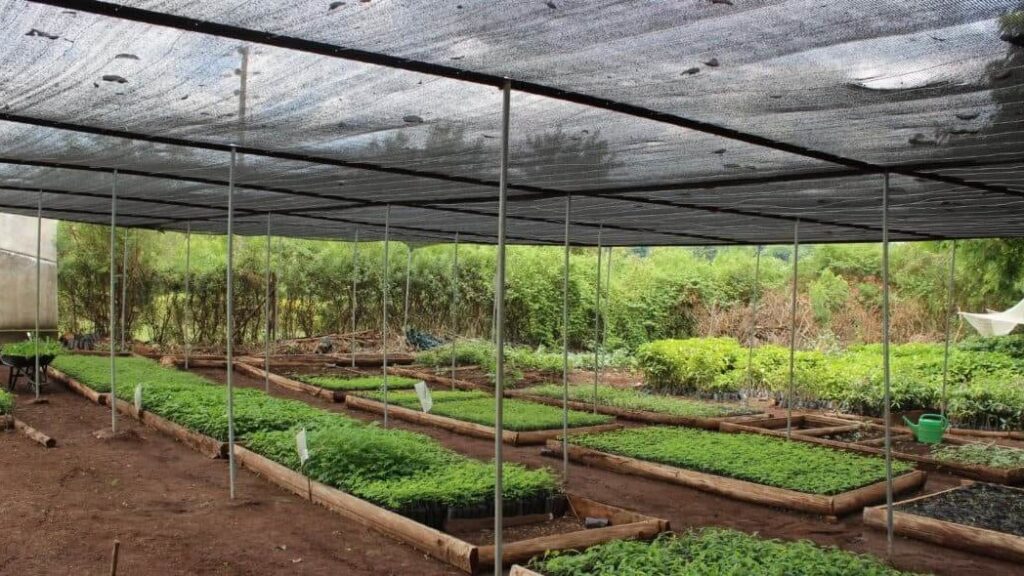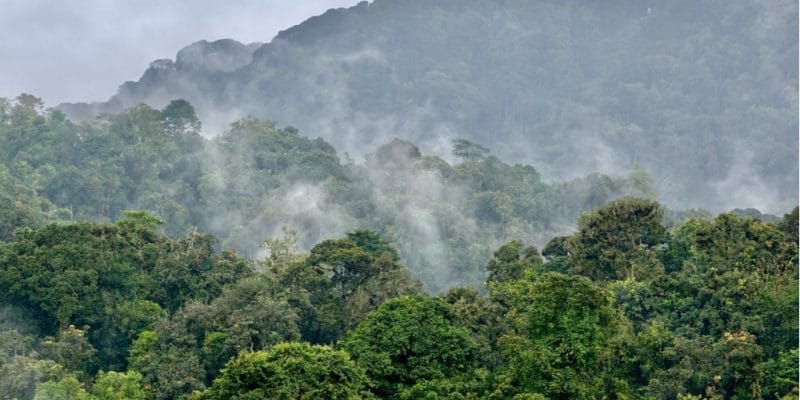Beneath the scorching sun and amidst the vibrant tapestry of cultures and landscapes, a silent crisis looms. The continent is grappling with an escalating environmental predicament that threatens not only its rich biodiversity but also the very fabric of human civilization. This crisis has triggered a seismic decoupling effect, marked by the depletion of natural resources and a relentless surge in human consumption.

As Africa’s population burgeons, the convergence of technology and urbanization to meet daily human needs has rendered the continent increasingly vulnerable to the unforgiving impacts of climate change.
Yet, Africa shares a common destiny with the rest of the world – the inescapable truth that soaring temperatures will amplify preexisting vulnerabilities and challenges. The climate crisis knows no boundaries, and its impacts are indiscriminate, disproportionately affecting vulnerable communities, including young girls and boys, who bear no responsibility for its genesis. Shockingly, nearly one billion children reside in nations perched precariously on the precipice of climate change and environmental hazards.
In the face of these climate change bottlenecks, the global community must embrace a pivotal concept: the green economy. This indispensable strategy holds the key to reversing current trends and ensuring the safety of both humanity and the environment. The adoption of a green economy must emerge from a consensus that only collective global economic adjustments can stave off the lethal consequences of climate change and environmental degradation.

The seeds of transitioning to a green economy were sown at the 2013 United Nations Conference in Rio de Janeiro. In that watershed moment, a blueprint emerged, outlining how each country could chart its path towards sustainable development and poverty eradication in harmony with their national plans, strategies, and priorities.
The concept of the green economy envisions a profound shift towards environmentally friendly and resource-efficient technologies, curbing emissions, mitigating climate change impacts, and simultaneously reducing environmental degradation and resource depletion. This transformation promises to enhance human well-being, promote social equity, and reduce environmental risks and ecological scarcities.
The promise of green growth is abundant, offering economic opportunities and growth potential for economies heavily reliant on natural resources. Key sectors, such as agriculture, fisheries, water resources, forests, and energy, represent our primary natural capital – resources waiting to be elevated to new heights. Sectors like manufacturing, construction, transport, tourism, and waste management demand significant investments in energy and resource efficiency. Aligning these endeavors with nature’s rhythms can yield cost-effective solutions and manifold benefits.

Unlocking green growth and climate finance solutions for Africa necessitates a resolute commitment. Effective climate finance promotion, backed by empirical evidence from country case studies, is imperative. These studies should illuminate how climate finance is mobilized, accessed, managed, and allocated to effectively reduce vulnerability, promote development, enhance gender equality, and curb greenhouse gas emissions. The challenge is significant, not only for national governments but also for the international community.
It’s a clarion call to East African states to not merely ratify but to diligently implement Agroforestry strategies. In doing so, states, through their respective ministries, will possess the knowledge and justification to increase the volume of resources allocated to climate action. Simultaneously, civil society organizations will assume their crucial role, ensuring that states allocate resources for climate action effectively, while meticulously monitoring expenditures and assessing resource performance.
In a world teetering on the edge of climate chaos, Africa’s green future lies in the hands of those who recognize the urgency of this moment. The transition to a green economy, supported by sustainable practices like agroforestry, is a beacon of hope, guiding us toward a harmonious coexistence with our planet. Together, we can rewrite the narrative, transforming Africa’s challenges into opportunities and safeguarding the legacy we leave for future generations.

About Memoir Uganda – Showcasing Uganda
We are a comprehensive tourism and travel media company unleashing information about Uganda. We offer, among others, an all-inclusive guide on everything Uganda such as itineraries, consular information, timely and updated tour and travel news and general information about visiting and living in Uganda.
To us, Uganda is more than a tour destination. It is our homeland. Our knowledge about Uganda is ocean deep and we love showing the country’s splendid beauty to the world. We aim at sharing and showcasing Uganda to the tiniest bit, better than anyone else. We also aim at conserving our home land through our un wavered efforts towards climate change awareness.
Our Memoir Uganda magazine showcases Uganda’s diverse potential in detail that is often left out and unknown. You ought never to miss a copy. We robustly believe that traveling should make the world a better place for everyone.





